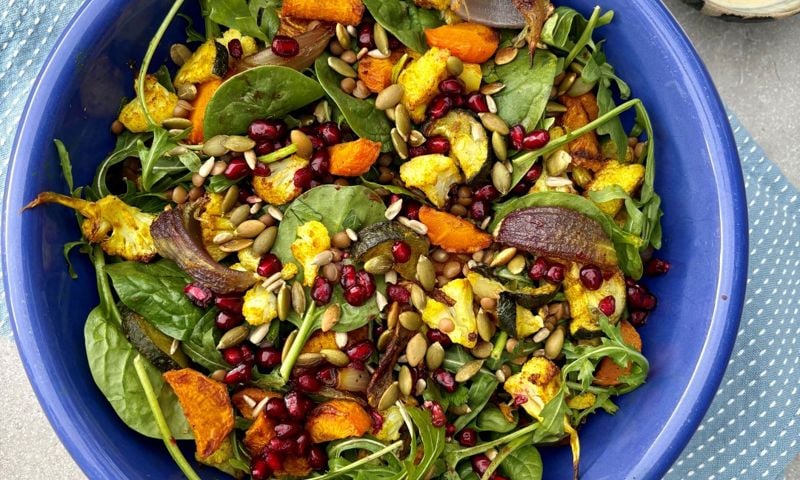Written by Mel Bald, GMHBA’s resident nutritionist
Are you sick of getting a 3pm energy slump and dragging yourself through the day? Let’s face it – most of us could do with some more energy. The good news is, what you eat (or don’t eat!) can help to boost your energy throughout the day and keep you performing at your best.
Here are my top tips on how to eat to ensure you optimise your energy levels all day long.
Balance your plate
Making sure you have the right balance of protein, fibre and complex carbohydrates on your plate for every meal is a key foundation to keeping you energised. Including a balance of protein, fibre and carbs at every meal will keep you from getting the “hangries” and provide consistent energy throughout the day.
Protein
Foods high in protein include red and white meat, fish, legumes, eggs, and Greek yoghurt. Protein will help to stabilise your blood sugar levels and keep you feeling full for longer. It’s important to include around one palm-sized portion of protein in every meal.
Fibre
Fibre plays an important role in slowing down the absorption of sugar into our bodies. This means it will help to avoid any energy level crashes. Fibre can be found in fruits, vegetables, whole grains and legumes. A great way to bump up your fibre intake is to make sure you have salad or veggies on your plate with every meal.
Carbohydrates
Carbs are often feared and associated with weight gain, but they are very important to our gut health. The trick is to stick to complex rather than simple carbs.
Complex cabs are rich in fibre and lower in sugar, so they can be absorbed at a slower rate. Foods such as brown rice, quinoa, whole oats, barley, sweet potato and beans are good examples.
Simple carbs are refined and include things such as cakes, biscuits and sweets, and are quickly digested. They cause blood sugar levels to spike quickly, giving you a quick boost of energy, as well as releasing the hormone serotonin, which makes you feel good instantly. This feeling is short-lived, and these foods will then cause you to crash quickly, leaving you feeling tired.
Choosing the right snacks
When choosing a snack, it’s important to go for one that is high in fibre and protein, and lower in sugar. Ideally you should be aiming for the sugar quantity to be less than 5 grams per 100 grams, the fibre should be more than 3 grams, and protein 5-15 grams per 100 grams.
Some great energy boosting snack options include:
- hummus with vegetable sticks
- Greek yoghurt with fresh berries
- peanut butter with celery sticks
- a handful of almonds with a banana.
B vitamins are your friend
The body has limited ability to store most B vitamins, so it’s important to include these in your diet. They play an important role in converting our food into energy. It’s also worth keeping in mind that alcohol can destroy or reduce the absorption of B vitamins, so going easy on alcohol consumption will keep your energy levels pumping.
Stress can impact your vitamin B levels and due to most of us having some stress in our lives, it is important to make sure you eat a healthy diet to get plenty of B vitamins.
Good sources of B vitamins include wholegrains, meat, poultry, eggs, nuts, fish, milk, legumes and fresh vegetables.
Go easy on the coffee
Coffee is an obvious pick me up and increases our body’s adrenaline and dopamine levels. This in turn increases our energy levels and creates a positive mood. However, when the effects of caffeine wear off and these chemicals drop in our bloodstream, it can cause both an energy and mood crash.
To help to prevent this crash, reduce the amount of coffee you are consuming and make sure you are drinking enough water. Try to avoid drinking coffee on an empty stomach, too.
Drink plenty of water
Dehydration can cause fatigue, poor concentration and headaches. Our bodies are made up of 60% water, so we need to keep hydrated for our cells to function properly. Even mild dehydration, which you may not even realise you have, has been shown to decrease energy levels.
Ideally you should be aiming for around two litres of water per day (more if you are doing exercise). If you have trouble remembering to drink enough water, you could try using a water reminder app, or get a large drink bottle and make sure you get through it all.



